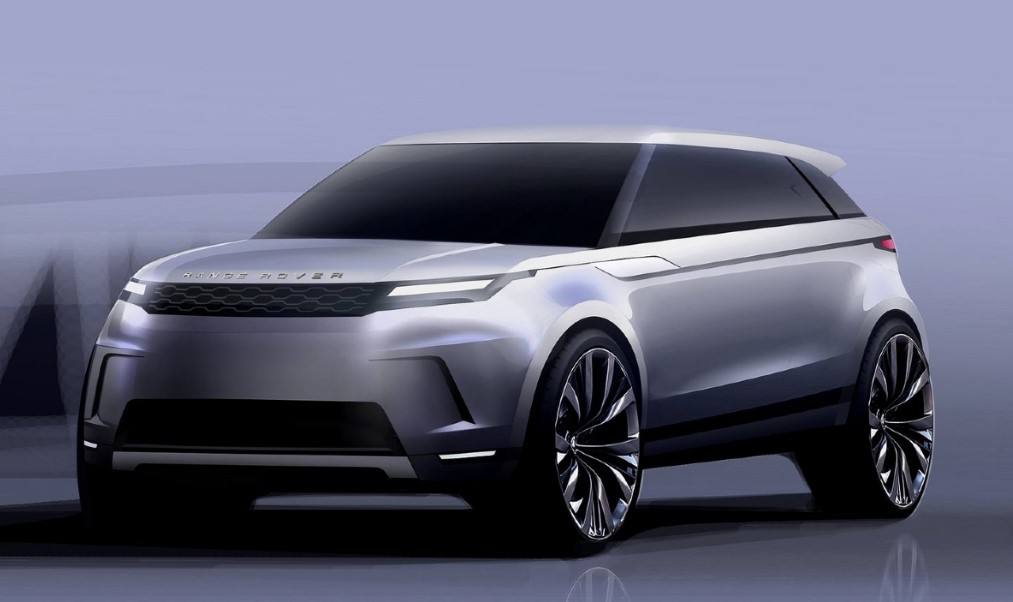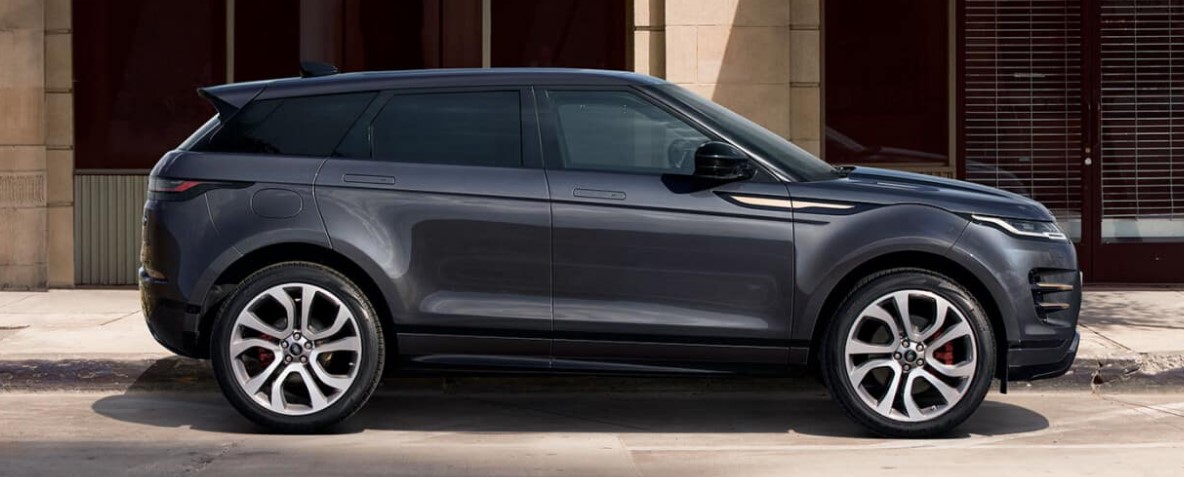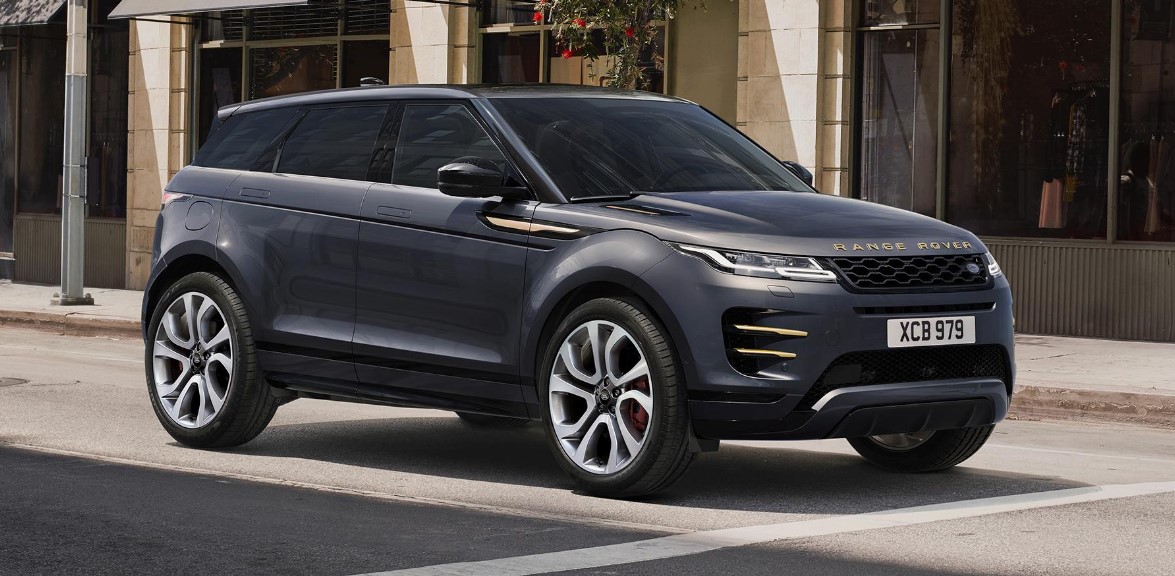Table of Contents
2025 Range Rover Evoque: What We Know So Far – The Range Rover Evoque is about to get an update according to a model that was camouflaged recently. The vehicle in the test has a couple of changes, such as the new grille, the new front fascia design, as well as a different design of the taillights.

The grille design, comprised of connected rectangles, is the same design as the new 2022 Range Rover and 2023 Range Rover Sport. This should help to improve connections between the Range Rover connection now that Range Rover is being made an independent brand inside JLR. JLR (formerly Jaguar Land Rover) fold.
There are likely to be changes within the newly updated Evoque also, including an updated infotainment system, and maybe some fresh material for the trim.
The sole engine available in the Evoque is a 2.0-liter turbo-4 engine rated at 246 horsepower in the regular guise and 296 hp when paired with a mild hybrid system. An automatic 9-speed and an all-wheel drive system round out the engine. There’s no way to tell if there are any new features to the system with this upgrade.
The latest Evoque model, which is the 2nd version of the nameplate came out in 2019 as a 2020 version. The update is a mid-cycle update of the small crossover. It is expected to debut in 2025 on an Evoque.
Its Discovery Sport sibling should also be updated at this date.
In the future, both Range Rover Evoque as well as Discovery Sport will be redesigned on a brand new electrical platform, known as the EMA. The first vehicle that is built around the EMA platform is expected to arrive around 2025. It is believed to be a redesign of the Range Rover Velar.

Review
The new Land Rover models–the small Discovery Sport as well as the 2025 Range Rover Evoque, and the bigger Defender, Discovery, and Range Rover models–will be built using one of two architectures of convergence that permit the use of both battery and hybrid electric models of the same vehicle. Six electric Land Rovers are due to debut within 5 years in addition, JLR Chief Executive Officer Thierry Bollore claims that 60% of the range is expected to be battery-powered by 2030.
The two brand-new platforms have been dubbed MLA (Modular Longitudinal Architecture) as well as EMA (Electric Modular Architecture). MLA is designed to fit larger Land Rovers, including the Defender, Discovery, and Range Rover families–and EMA will be the foundation for the new generation of Discovery Sport as well as the Range Rover Evoque models. Land Rover will build MLA-based models at its famous Solihull manufacturing facility and is expected to build EMA models at the company’s Halewood manufacturing facility, which manufactures the current Discovery Sport and Range Rover Evoque.
The platform convergence strategy provides production flexibility, however, it results in a heavier and weaker structure as a result of the necessity to fit two totally different powertrains. But the way to go is that, according to Bollore states, Land Rovers must remain the most powerful SUVs within their class. This includes internal combustion engine models that can be adapted to work in areas that are remote and the convergence platform may be most suitable in the near time. Bollore states that Land Rover “will achieve zero tailpipe emissions by 2036,” at which point it is likely that the entire range will be constructed using a BEV-specific platform.
Land Rover’s initial EV was planned to be a sleek and low-slung vehicle, internally named”the Road Rover. However, since Jaguar shifted to becoming an electric-only brand in 2025, the concept has been scrapped. Instead, look for an electric version of the flagship model of the fifth generation Range Rover, the final model is likely to evolve from present-day models.
Design
The month before, Jaguar Land Rover announced plans to boost their electrification strategy and convert their Halewood factory into a fully electric manufacturing facility. Jaguar Land Rover also announced the next generation of their “medium-size SUV architecture, electrified modular architecture (EMA), will now be pure-electric.”
Although the company did not go into detail in the past, Autocar is reporting the Velar will come back in the form of an electric vehicle to compete with the coming Porsche Macan EV. Autocar claims it’ll be one of the first electric Land Rover built at Halewood and could be followed by electric alternatives to the Evoque as well as the Discovery Sport.
Velar EV Velar EV will reportedly go into production by 2025 and provide “vastly improved endurance, performance and practicality.” The details aren’t available yet, but it is noted that the model currently in production has proven to be an unpopular seller.
This is certainly the case since it is beaten by every other model within the Land Rover lineup except the older Discovery. The Velar has done better than each Jaguar apart from the F-Pace.
Returning to JLR’s evolution The company is aiming to establish its position as an “electric-first, modern luxury carmaker by 2030.” To be an element of this plan the electrical Range Rover will go up to be ordered later in the year. Jaguar is also changing with three new models in the works.
The very first model is a “4-door GT” that starts at PS100,000 ($123,920) It will have as much as 300 miles (700 kilometers) of range it is also the largest and most robust Jaguar in the history of Jaguar. Further details will be announced at the end of this year, and deliveries will start in 2025.
Although EVs are the main focus, however, the automaker doesn’t have all of its eggs in one basket. Instead, they’ll “retain” the modular longitudinal structure (MLA) which is the foundation of the Range Rover and Range Rover Sport. It’s extremely adaptable and is able to accommodate hybrid, electric, as well as ICE engines. The manufacturer has stated that it will allow them to “meet the needs of different markets around the world, that are moving at different speeds towards net zero carbon targets.”
Specs
It is expected that the next generation Range Rover Evoque, like the upcoming Porsche Macan, will be an electric vehicle as a standard. According to the Autocar report, JLR will offer the new-generation Range Rover Evoque, next-gen Land Rover Discovery Sport, as well as the next-gen Range Rover Velar exclusively as electric vehicles.
It is expected that the Range Rover Evoque EV will have a brand new platform dubbed ‘Electrified Modular Architecture’ (EMA).’ JLR made the announcement of EMA as a “native BEV” or a completely electric-biased platform that will be able to support sophisticated internal combustion engines that are electrified by 2021. On the 19th of April 2023, JLR declared a shift in its plan, declaring that EMA “will now be pure-electric.”
According to JLR the EMA platform “born from an obsession with simplicity,” will permit battery designs of all forms and chemical compositions. It will give JLR the ability to be flexible and provide a range of configurations in line with the variety and needs of clients in various sectors.
The EMA platform will have an open floor plan that will maximize the space inside and will come equipped with custom-designed electrical drive units (EDUs) with an efficiency of 92. They will be capable of 800V and are also the ones with the greatest torque density of their category. JLR has estimated their energy efficiency at 4-4.5 miles/kWh. This would significantly improve I-Pace’s efficiency ratings. To give you an idea of this, the I-Pace comes with an efficiency score of 35.4-40.5 100 miles, or kWh (2.4-2.8 miles/kWh) for both EV320 as well as EV400 versions, according to the WLTP for Europe. It is likely that the electric Evoque will have plenty of space and a short wait time at the charging stations, as well as a range that is competitive.
There are a variety of ways that this Range Rover Evoque Electric will outdo a similar gasoline-powered SUV. An electric motor that is quiet will make driving more pleasurable to customers. In addition, the flat flooring could provide more passengers with storage space. This would enhance comfort and efficiency.
Apart from the obvious advantages of the compact size, the torquey characteristics of an electric engine will make this zero-emission SUV a superior urban option. Additionally, if you like off-roading, this model will offer more power.
The batteries in the Range Rover Evoque EV could be manufactured in either the UK or Spain. On the 19th of April 2023 citing JLR Chief Executive Officer Adrian Mardell, Financial Times reported that the parent corporation Tata Motors will soon decide to build a battery plant located in one of these two European nations. The battery’s technology comes from the Chinese company Envision AESC.
Envision AESC has plans to establish a brand factory for manufacturing batteries within the UK. It is expected to be constructed in Sunderland The British plant will supply Nissan. If JLR be able to negotiate a contract for the supply of battery together with the Chinese supplier of batteries, the probable volumes might warrant a new battery manufacturing facility in the UK. JLR would like to source batteries from local factories however, production facilities located in Spain in Spain, where costs are lower, is being considered according to reports. There is no indication that JLR or Envision AESC has confirmed talks concerning a supply agreement for batteries.
The production of Tata Motors’ European battery plant isn’t expected to begin until approximately four years according to a Financial Times report. In the meantime, Tata Motors is likely to source batteries from other areas, such as the Envision AESC Sunderland (UK) manufacturing facility. JLR isn’t planning to create the Gigafactory that produces batteries. Mardell declared, according to a report BirminghamLive released on April 19, 2023.

Price and Release Date
We believe that the new Range Rover Evoque would be significantly more costly than the current model available in dealerships. The starting price of this customized electric SUV is likely to amount to around USD $60,000. As a reference, the price of the second-gen gasoline-powered version starts at around USD 51,000.
The Autocar report suggests 2025 as the expected Range Rover Evoque electric launch date. The announcement of the Range Rover Evoque electric is just the right time due to the promising announcements of the BMW iX2 and the Volvo C40 to grow this sub-segment into a thriving market.
The next-gen Range Rover Evoque will take place at Land Rover’s Halewood manufacturing facility located in Liverpool, UK, the same plant that made the previous and subsequent models. This plant is JLR’s first electric manufacturing plant.
JLR is beginning the foundations to ensure that the factory is compatible with EMA platform-based EVs. JLR has begun the process of tendering. It will then be shut down for a long time in order until the final conversion is completed to EVs in 2024.